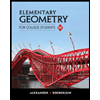If you pick a card from a regular deck of 52 cards, what is the probability of getting a club 3 times in a row? Assume that the club is put back in after each draw so that you are selecting from a full deck each time. (Enter your probability as a fraction.)
If you pick a card from a regular deck of 52 cards, what is the probability of getting a club 3 times in a row? Assume that the club is put back in after each draw so that you are selecting from a full deck each time. (Enter your probability as a fraction.)
Elementary Geometry For College Students, 7e
7th Edition
ISBN:9781337614085
Author:Alexander, Daniel C.; Koeberlein, Geralyn M.
Publisher:Alexander, Daniel C.; Koeberlein, Geralyn M.
ChapterP: Preliminary Concepts
SectionP.CT: Test
Problem 1CT
Related questions
Question
100%
If you pick a card from a regular deck of 52 cards, what is the probability of getting a club 3 times in a row? Assume that the club is put back in after each draw so that you are selecting from a full deck each time. (Enter your probability as a fraction.)
Expert Solution
Step 1
INTRODUCTION
Aim: We have to find the probability of getting a club 3 times in a row if we pick a card from a regular deck of 52 cards. The club is put back in after each draw so we select from a full deck each time.
Trending now
This is a popular solution!
Step by step
Solved in 3 steps

Recommended textbooks for you

Elementary Geometry For College Students, 7e
Geometry
ISBN:
9781337614085
Author:
Alexander, Daniel C.; Koeberlein, Geralyn M.
Publisher:
Cengage,

Elementary Geometry for College Students
Geometry
ISBN:
9781285195698
Author:
Daniel C. Alexander, Geralyn M. Koeberlein
Publisher:
Cengage Learning

Elementary Geometry For College Students, 7e
Geometry
ISBN:
9781337614085
Author:
Alexander, Daniel C.; Koeberlein, Geralyn M.
Publisher:
Cengage,

Elementary Geometry for College Students
Geometry
ISBN:
9781285195698
Author:
Daniel C. Alexander, Geralyn M. Koeberlein
Publisher:
Cengage Learning